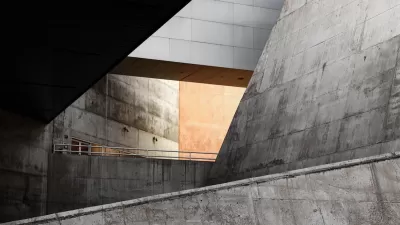It's not just residents who are suffering the country's highest rents. Non profits are suffering too. However, some are displaying adaptability and creativity in dealing with high rents, notes consultant David Prowler.
"San Francisco’s nonprofit sector is large and varied, accounting for nearly 8% of total wages. We rely on them to help keep San Francisco the great city it is. And they need places to work. Imagine the city without them: no clinics, few theatres, no places to serve our elderly, homeless, or disabled. If they can’t afford to stay we all lose," notes former Special Assistant to Mayor Willie Brown and Director of the Mayor’s Office of Economic Development turned consultant, David Prowler. The rents are effecting them as they are residents of the city.
The Google Bus protests recently put a spotlight on the skyrocketing rents in the city—rents that effect residents and non profits alike. However, this isn't the first time a tech boom put rent pressure on non profits. In 2000, a study "found that 58% of sites rented by nonprofits are at risk of displacement within the next 15 months. 65% of nonprofits that don’t provide direct services are thinking of leaving the City."
In this tech boom, as in the 2000 boom, "[n]imble nonprofits are meeting the challenges. Some are shrinking their own space and subletting to others to share the cost. Others are working in shared space . . . or even learning how well they can do without any office space. They are reaching out to resources like the Northern California Community Loan Fund and the Community Arts Stabilization Trust for technical and financial help...They are partnering with developers..."
He also notes that booms come with benefits and that busts, while putting downward pressure on rents, also put downward pressure on non profit revenue. For more details, see the source article by clicking the link below.
FULL STORY: San Francisco Non Profits Dealing with the Crunch

What ‘The Brutalist’ Teaches Us About Modern Cities
How architecture and urban landscapes reflect the trauma and dysfunction of the post-war experience.

‘Complete Streets’ Webpage Deleted in Federal Purge
Basic resources and information on building bike lanes and sidewalks, formerly housed on the government’s Complete Streets website, are now gone.

The VW Bus is Back — Now as an Electric Minivan
Volkswagen’s ID. Buzz reimagines its iconic Bus as a fully electric minivan, blending retro design with modern technology, a 231-mile range, and practical versatility to offer a stylish yet functional EV for the future.

Healing Through Parks: Altadena’s Path to Recovery After the Eaton Fire
In the wake of the Eaton Fire, Altadena is uniting to restore Loma Alta Park, creating a renewed space for recreation, community gathering, and resilience.

San Diego to Rescind Multi-Unit ADU Rule
The city wants to close a loophole that allowed developers to build apartment buildings on single-family lots as ADUs.

Electric Vehicles for All? Study Finds Disparities in Access and Incentives
A new UCLA study finds that while California has made progress in electric vehicle adoption, disadvantaged communities remain underserved in EV incentives, ownership, and charging access, requiring targeted policy changes to advance equity.
Urban Design for Planners 1: Software Tools
This six-course series explores essential urban design concepts using open source software and equips planners with the tools they need to participate fully in the urban design process.
Planning for Universal Design
Learn the tools for implementing Universal Design in planning regulations.
City of Albany
UCLA Lewis Center for Regional Policy Studies
Mpact (formerly Rail~Volution)
Chaddick Institute at DePaul University
City of Piedmont, CA
Great Falls Development Authority, Inc.
HUDs Office of Policy Development and Research



























